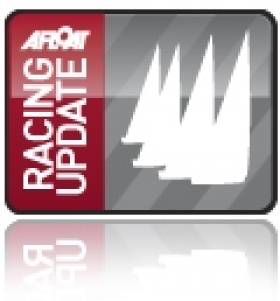Displaying items by tag: Celtic Regatta
#CelticRegatta - The inaugural Spinlock IRC Welsh Championships hosted by Pwllheli Sailing Club (PSC) is less than a fortnight away, with the Irish expected to make a strong showing in a competitive fleet over the weekend of 1-3 August.
And with a few free berths available in the harbour's new pontoons, there's still a chance to get involved in what's shaping up to be a strong weekend of racing.
Last year's successful J Cup at PSC was a springboard to launch the first 'Celtic Regatta', with the added award of the Spinlock IRC regional title.
The event will also showcase the recently completed visitor and event pontoons which form part of the £8.3m investment in the Welsh National Sailing Academy and Event Centre.
The Welsh Championships will be the first major event to make use of the new facilities, a year in advance of the Fireball Worlds scheduled for 17-28 August 2015.
Among the Celtic Regatta's supporters is the Irish Cruising Racing Association (ICRA), which has just completed its own successful championships hosted by the Royal Irish Yacht Club in Dun Laoghaire.
ICRA chairman and event organiser Norbert Reilly commented that the two events strengthen the ties already established across the Irish Sea. Indeed, a trophy will be awarded to the competitor with the best combined results in the two events.
And that's not to mention the Dun Laoghaire to Pwllheli ISORA Race on 26 July, a feeder race to the Welsh Championships that counts as the seventh race in the ISORA 2014 series sponsored by Kona.
"The ISORA fleet regularly visits Pwllheli either for a race start or finish and the Welsh welcome is always warm and friendly," said ISORA chairman Peter Ryan. "The new facilities in Pwllheli will make the sailing waters easily accessible and a great destination for visiting offshore fleets, flotillas and for keel boat regattas and championships."
Among the other competitors readying for the regatta is Richard Fildes, a seasoned campaigner in Cork Week and Dun Laoghaire, notably successful in his recently sold Corby 37 Impetuous.
His home waters are in Cardigan Bay, and he says he's looking forward to competing in the Welsh IRCs in his recently acquired Corby 33 Impostor - as well as return the favour of the many great Irish welcomes he's received over the years.
Fildes and the rest will race a programme designed by international race officer Mike Butterfield, who heads the IRC Welsh Championships race management team and promised to provide the best possible competition on the water.
"The bay offers ideal race management opportunities with no commercial shipping to worry about and the tidal influence is not significant," said Butterfield.
Meanwhile, PSC Commodore Stephen Tudor - a former Irish Sea ISORA Champion himself - expressed his pride in his clubs hosting of the first Welsh IRC Championships and said he is "delighted to see competitors already entered from Ireland, Isle of Man, Scotland and Liverpool in addition to the local competitive fleet.
"Entries are still being received and we still have free berths available for the event on the new academy pontoons."
























































